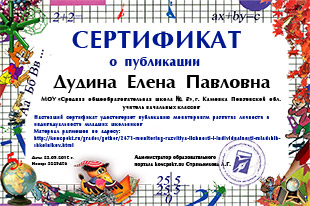Лексический тест по английскому языку для студентов 1 курса
Лексический тест по практикуму иностранного (английского) языка для контроля знаний студентов 1 курса.
Работа состоит из 120 заданий с вариантами ответов.
Lexical Test
1. Прочтите текст и ответьте на вопрос после текста:
A traveller who had been riding in rain and was wet through, arrived at a small hotel in the country. There was only one fireplace in the hall and a lot of people around it. The traveller thought of a plan how to get warm. He asked the hotel owner to give some fish to his horse. The hotel owner was surprised but the traveller insisted and the hotel owner did as he was asked.
All the people rushed out to see the horse eat fish. The traveller had the fireplace all to himself and felt comfortable. When the hotel owner had returned he said, "I was sure horses do not eat fish". - "Then why did you give it to my horse?". Why did the traveller ask the hotel owner to feed his horse with fish?
a) because he wanted to get warm
b) because it was hungry
c) because he was tired
d) because he wanted to sleep
e) because he wanted to see the horse eat fish
2. Прочитайте текст и ответьте на вопрос после текста:
Jonathan Swift liked order in everything. All the people in his house, for example, had to shut the door behind them when they came into the room or left it. One day a maid servant came and asked him to let her visit her sister who lived ten miles away. Swift not only agreed, but let her go there in his own carriage. The girl was so happy that she forgot to shut the door when she left the room.
Swift let her go, but about half an hour later he ordered one of the servant to ride after the carriage and tell the girl come back. The poor girl had to turn back. She asked him what he wanted. "I only want you to shut the door", was his answer. "Now you may go to visit your sister. I wish you a pleasant journey". Why did J. Swift order the girl to come back?
a) Because he wanted to teach her discipline.
b) Because he was a good master.
c) Because he wanted to wish her a pleasant journey.
d) Because he wanted to give her his carriage.
e) Because he wanted to stay her at home.
3. Прочтите текст и ответьте на вопрос после текста:
The famous composer Rakhmaninov was also a very good pianist. When he was a small boy he was asked to play at a home party at their friends’ place. Though he was only eight he was quite experienced in playing the piano and did it well. At that concert he was to play one of Beethoven’s sonatas.
It must be mentioned that there are several very long intervals in that sonata. In each of these intervals the boy took his hands off the keyboard and waited. During one of these intervals the old mother of the hostess came up to him and said, «My boy, why don’t you play anything that you know very well?» Why did the boy stop playing several times?
a) because he didn’t remember the sonata
b) because he was mistaken
c) because the sonata had some long intervals
d) because he was tired
e) because the sonata had some short intervals
4. Прочитайте текст, выберите правильный ответ на вопрос:
Mark Twain once said, "When I was a boy of 14, I thought that my father was the most ignorant of all men. But when I got to be 21, I was surprised at how much the old man had learned in seven years". What did Mark Twain think about his father?
a) He got to be 21.
b) He was a boy of 14.
c) He knew very little.
d) He was surprised.
e) He ignored all men.
5. Прочитайте текст и выполните задание после текста:
One day my cousin George and I decided to visit our Granny in London. After lunch we all three decided to sail down the Thames to have a look at the old ships. But suddenly it started raining, so we had to change our plans. We decided to visit Madame Tussaud’s instead.
George hadn’t been there before. It was great fun seeing all the wax figures. There were some new ones I hadn’t seen before. After an hour Granny felt a little tired and wanted to sit down and rest for a moment. George and I went to look at all the murderers in the cellar. We promised to come back in half an hour.
When we came back we saw two American tourists standing in front of Granny and taking a photo of hers. We heard one of them say, "She is sure to look like a real woman!" You should have seen their faces a moment later when Granny opened her eyes!
Выберите заголовок к тексту:
a) A clever Granny.
b) English museums.
c) Good relatives.
d) George and his Granny.
e) A case in the museum.
6. Прочитайте текст, выберите правильный ответ на вопрос:
Jane came home after her first day at school. "Well, dear", asked her mother, "what did they teach you?" "Not much," answered the child. "I have to go again".
What did her mother ask her?
a) She asked her whether the teacher liked Jane.
b) She asked what the teachers had looked like.
c) She asked what they had taught Jane.
d) She asked her whether she had liked her teacher.
e) She asked what they had asked Jane.
7. Прочитайте текст, выберите правильный ответ на вопрос:
Charles has just entered school. "What is your name?" the teacher asked. "Charles", was the answer. "Charles what?" the teacher questioned. "Oh, that’s all right," the boy said, ""just call me Charles." What has happened to Charles?
a) He entered the school by the side door.
b) He has been attending school for some months.
c) He has done the first homework.
d) He has become a pupil.
e) He doesn’t want to enter school.
8. Прочитайте текст и выберите подходящий заголовок:
After the War of Independence the USA needed a capital city. It was difficult to choose it because different cities in different parts of the country wanted to be the nation’s capital. In the end it was decided to build a new city. In 1791 George Washington, the first president, chose the place where the city now stands. He thought it was a good place because the Potomac River was large enough for ships to come as far as the site of the city.
The land round the city was called the District of Columbia, after Christopher Columbus; and the city on it was named Washington, in honour of the country’s first president.
a) Different cities of America.
b) The War of Independence.
c) The discovery of America.
d) The first President.
e) From the history of the capital.
9. Прочитайте текст и выполните задание после текста:
Mr. Nelson wanted to be elected sheriff in a New Hampshire county. He went from farm to farm asking people to vote for him. Mrs. Marrow saw him coming up one day and reached for the broom. "Get off, you good-for-nothing loafer", she shouted. "But Mrs. Marrow", said Nelson. "I have just come to ask you if you’ll vote for me for sheriff". "Sheriff!" shouted Mrs. Marrow. "Your place is in the lockup, not in the sheriff’s office.
You are a scoundrel, and your father was a scoundrel, and your grandfather was a scoundrel. Get out of here before I take this broom to you". Nelson decided to go. Before climbing back into the car,he took out his notebook and wrote, after the name of Marrow, one word: "Doubtful". Закончите предложение: Mr. Nelson was ...
a) ... a sheriff.
b) ... a President.
c) ... a cruel and brave man.
d) ... a candidate for sheriff.
e) ... a graduate from New Hampshire University.
10. Прочитайте текст, выберите правильный ответ на вопрос:
A very rich man asked a famous artist to draw something for him in his album. The artist did so, and asked for one hundred dollars. "Why!" cried the rich man. "It took you only five minutes to do it!" "Yes," answered the artist. "But it took me twenty years to learn how to do it in five minutes." Why did the famous artist ask for money for his work?
a) It had taken him twenty years to draw money.
b) It had taken him twenty minutes to learn how to ask for money.
c) It had taken him twenty years to learn how to draw.
d) It had taken him five minutes to learn how to do albums.
e) It took him five minutes to learn how to draw.
11. Прочитайте текст, выберите завершение предложения, соответствующее содержанию текста:
Balzac, the famous French writer, was a man of great talent. But he himself was proud of his ability to tell a person’s character by his or her handwriting. One day a woman brought him a young boy’s exercise-book. She said she wanted to know what Balzac thought of the boy’s character. Balzac studied the boy’s handwriting carefully. Then he said that the boy was a lazy fellow. "It’s very strange," said the woman smiling. "This is a page from your own exercise-book, which you used when you were a boy." Balzac … .
a) Was an engineer.
b) Had an exercise-book.
c) Was going by train to France.
d) Was a man of great talent.
e) Was a famous English writer.
12. Прочитайте текст и выполните задание после текста:
London is famous as a city where businessmen carry umbrellas and wear bowler hats. But do you know how the umbrella came to England? The word "umbrella" is Italian, meaning "a little shade". The Italians did not invent the umbrella, however, it was used many centuries ago in the East as a protection against the sun. In England it was used more as a protection against the rain and the first man to appear in the streets of London with an umbrella more than a hundred and fifty years ago was Jonas Hanway.
But the first umbrella user did not have an easy time: he got into trouble with coachmen. They did not want people to use umbrellas in rainy weather, they wanted them to ride in their coaches. But the Londoners were so grateful to Jonas Hanway that when he died they erected a monument to his memory in Westminster Abbey, where it may still be seen to this days. Ответьте на вопрос: How did the Englishmen use the umbrella?
a) They used the umbrella as "a little shade".
b) They used the umbrella in hot weather.
c) They used the umbrella to ride a coach.
d) They used the umbrella as a protection against the sun.
e) They used the umbrella as a protection against the rain.
13. Прочитайте текст и выполните задание после текста:
The majority of the British population live in small houses built close together. A typical house of this kind is built with two floors. The front door, which faces the street, opens into a hall with two rooms, one on each side of the hall. One of them is the dining-room, the other is the sitting-room. The rooms upstairs are bedrooms. They are often small. Often the dining-room is the most comfortable room in the house and the one that is used all the time.
Very many houses of this type were built in the 19th and early 20th centuries. Today the land on which they stand has become very valuable so the houses are very expensive. Ответьте на вопрос: Where do the majority of the British people live in?
a) In comfortable flats.
b) In the country.
c) In small houses.
d) In big houses.
e) In small towns.
14. Прочитайте текст и выполните задание после текста:
London parks are the most beautiful areas of the city. In the summer you can sit in St. James’s Park by the side of the lake and listen to the band playing music. Green Park is a different kind of park. It is a quiet, wooden place. Hyde Park was once part of a forest. In our days, Speakers’ Corner of the park is always a centre of activity.
Sunday is the most popular day and you will usually find some people standing on their soap-boxes and making speeches. There is a boating lake, and skating in the winter if the ice is 10 centimetres thick. There is an open-air theatre where plays are put on in the summer, and rose garden and a restaurant. Закончите предложение: A quiet wooden place is ...
a) ... Speakers’ Corner.
b) ... Green park.
c) ... St. Games’s Park.
d) ... Hyde Park.
e) ... Forest.
15. Прочитайте текст, выберите завершение предложения, соответствующее содержанию текста:
Mark Twain was travelling in France. Once he was going by train to Dijon. He asked the conductor to wake him up when they came to Dijon and put him off the train not paying attention to his protests.
When he woke up the train was in Paris already. He realized that the conductor had forgotten to wake him up at Dijon. He was very angry. He ran up to the conductor and began to shout at him. The conductor looked at him calmly. "You are not half so angry as the American whom I put off the train at Dijon," he said. Mark Twain knew … .
a) The conductor.
b) The way to Dijon.
c) That the conductor would be angry.
d) That it was difficult to make him do it.
e) That it was difficult to wake him up.
Лексический тест по английскому языку для студентов 1 курса публикуется в сокращении. Скачать полную версию вы можете по ссылке ниже



